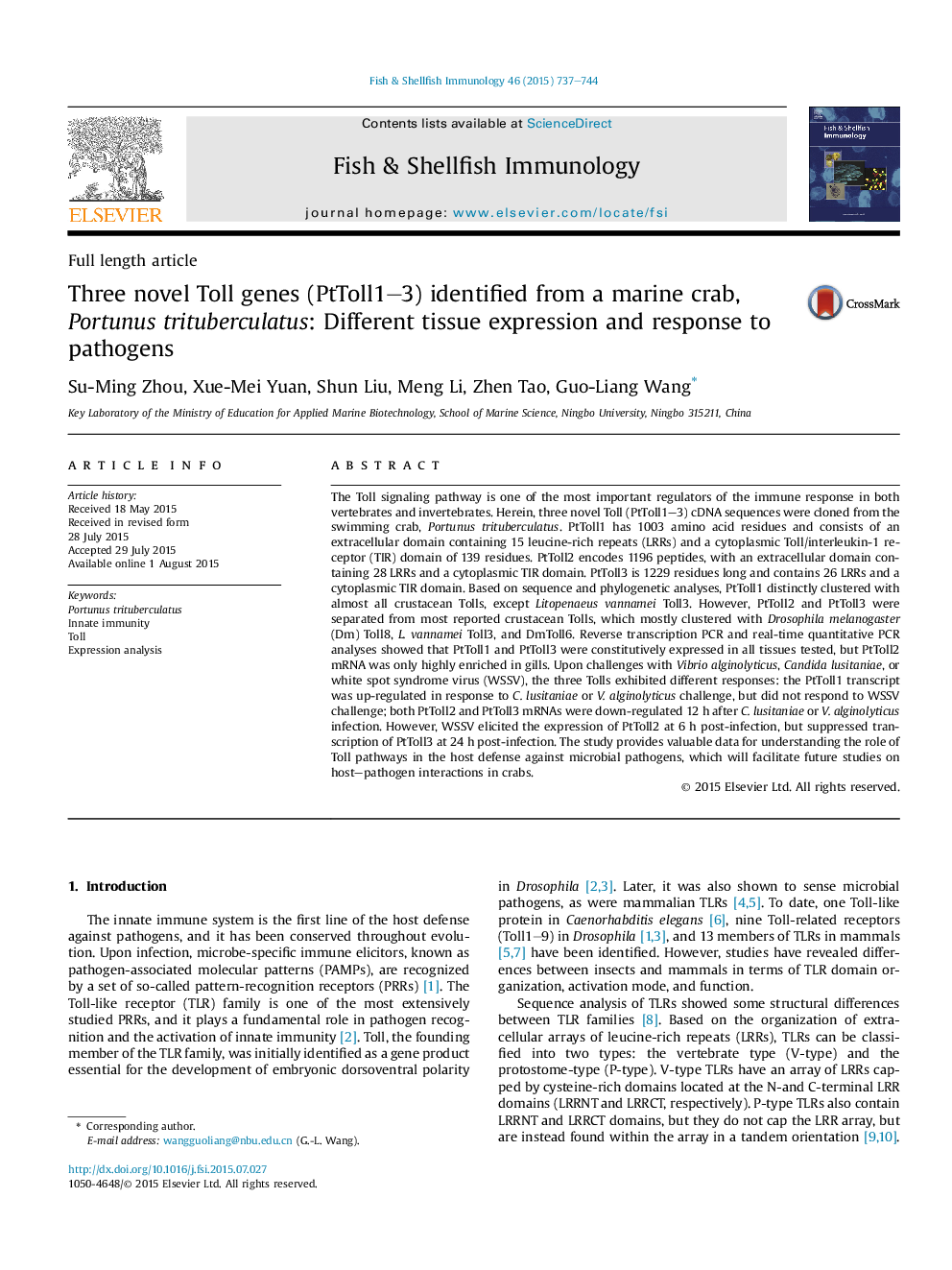| کد مقاله | کد نشریه | سال انتشار | مقاله انگلیسی | نسخه تمام متن |
|---|---|---|---|---|
| 2431197 | 1106745 | 2015 | 8 صفحه PDF | دانلود رایگان |

• Three novel marine crab Tolls PtToll1–3 was cloned and characterized.
• Expression PtToll1 and 3 are ubiquitous in tissues but PtToll2 is only high in gills.
• PtToll1–3 exhibited different responses in crab gills upon challenges with pathogenic microbes.
The Toll signaling pathway is one of the most important regulators of the immune response in both vertebrates and invertebrates. Herein, three novel Toll (PtToll1–3) cDNA sequences were cloned from the swimming crab, Portunus trituberculatus. PtToll1 has 1003 amino acid residues and consists of an extracellular domain containing 15 leucine-rich repeats (LRRs) and a cytoplasmic Toll/interleukin-1 receptor (TIR) domain of 139 residues. PtToll2 encodes 1196 peptides, with an extracellular domain containing 28 LRRs and a cytoplasmic TIR domain. PtToll3 is 1229 residues long and contains 26 LRRs and a cytoplasmic TIR domain. Based on sequence and phylogenetic analyses, PtToll1 distinctly clustered with almost all crustacean Tolls, except Litopenaeus vannamei Toll3. However, PtToll2 and PtToll3 were separated from most reported crustacean Tolls, which mostly clustered with Drosophila melanogaster (Dm) Toll8, L. vannamei Toll3, and DmToll6. Reverse transcription PCR and real-time quantitative PCR analyses showed that PtToll1 and PtToll3 were constitutively expressed in all tissues tested, but PtToll2 mRNA was only highly enriched in gills. Upon challenges with Vibrio alginolyticus, Candida lusitaniae, or white spot syndrome virus (WSSV), the three Tolls exhibited different responses: the PtToll1 transcript was up-regulated in response to C. lusitaniae or V. alginolyticus challenge, but did not respond to WSSV challenge; both PtToll2 and PtToll3 mRNAs were down-regulated 12 h after C. lusitaniae or V. alginolyticus infection. However, WSSV elicited the expression of PtToll2 at 6 h post-infection, but suppressed transcription of PtToll3 at 24 h post-infection. The study provides valuable data for understanding the role of Toll pathways in the host defense against microbial pathogens, which will facilitate future studies on host–pathogen interactions in crabs.
Journal: Fish & Shellfish Immunology - Volume 46, Issue 2, October 2015, Pages 737–744